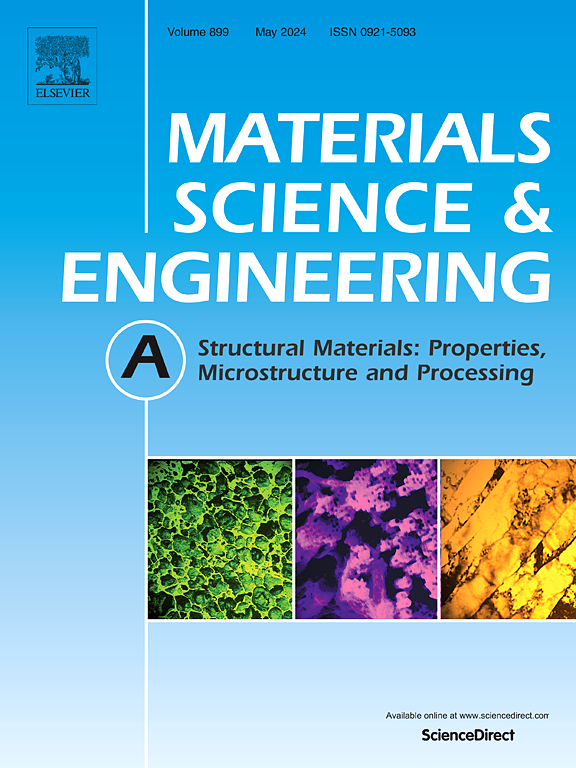Fabrication of Mo-20Cu sheets via liquid sintering, cold rolling and heat treatment
IF 7
2区 材料科学
Q1 MATERIALS SCIENCE, MULTIDISCIPLINARY
引用次数: 0
Abstract
Mo-Cu alloys are widely utilized in heat sink materials, electronic packaging, and related fields due to their excellent electrical and thermal conductivity and low coefficient of thermal expansion. However, poor interfacial bonding significantly compromises their plastic deformability, thereby adversely affecting the processability during manufacturing operations. In this work, 0.5-mm-thick Mo-20 wt%Cu (MC20) composites with 80 % deformation were fabricated through high-temperature liquid-phase sintering followed by cold rolling and subsequent heat treatment, using self-synthesized ultrafine Mo powder and commercial Cu powder as raw materials. The changes in microstructure and properties of MC20 composites were investigated under various conditions. The Mo particles exhibited two distinct deformation behaviors at the Mo-Mo interfaces and Mo-Cu interfaces. The synergistic deformation behavior and failure mechanisms of the dual-phase material in the MC20 composite were revealed. Cold mechanical deformation induced a transition in the fracture mechanism of the MC20 composite from ductile to brittle. After annealing at 400 °C, the MC20 composite achieved an ultimate tensile strength of 1042 MPa.
液相烧结、冷轧和热处理制备Mo-20Cu薄板
钼铜合金因其优良的导电性、导热性和较低的热膨胀系数而广泛应用于散热器材料、电子封装等领域。然而,不良的界面结合会严重影响其塑性变形能力,从而对制造过程中的可加工性产生不利影响。以自合成的超细Mo粉和市售Cu粉为原料,通过高温液相烧结-冷轧-热处理,制备了变形率为80%的0.5 mm厚Mo-20 wt%Cu (MC20)复合材料。研究了MC20复合材料在不同条件下的组织和性能变化。Mo颗粒在Mo-Mo界面和Mo- cu界面表现出两种不同的变形行为。揭示了MC20复合材料中双相材料的协同变形行为和破坏机制。冷力学变形导致MC20复合材料的断裂机制由韧性向脆性转变。在400℃退火后,MC20复合材料的抗拉强度达到1042 MPa。
本文章由计算机程序翻译,如有差异,请以英文原文为准。
求助全文
约1分钟内获得全文
求助全文
来源期刊

Materials Science and Engineering: A
工程技术-材料科学:综合
CiteScore
11.50
自引率
15.60%
发文量
1811
审稿时长
31 days
期刊介绍:
Materials Science and Engineering A provides an international medium for the publication of theoretical and experimental studies related to the load-bearing capacity of materials as influenced by their basic properties, processing history, microstructure and operating environment. Appropriate submissions to Materials Science and Engineering A should include scientific and/or engineering factors which affect the microstructure - strength relationships of materials and report the changes to mechanical behavior.
 求助内容:
求助内容: 应助结果提醒方式:
应助结果提醒方式:


